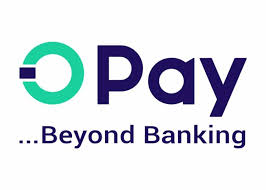Starting Monday, financial institutions in Nigeria will implement a new N50 electronic transaction levy on deposits of N10,000 and above. This new regulation, part of the Electronic Money Transfer Levy Regulations enacted in 2022, aims to boost government revenue amid ongoing financial challenges.

The transaction levy will apply to money transferred electronically, and various fintech companies, including popular mobile banking operators like OPay and PalmPay, have begun notifying their customers about this new fee. These funds will be collected and managed by the Federal Inland Revenue Service (FIRS), which oversees tax collection for the federal government.
This levy comes on the heels of a recent policy reversal where the government scrapped a 0.5% cybersecurity tax on electronic money transfers, which was unpopular among users.
One of the most significant impacts of this transaction levy could come from OPay, Nigeria’s leading mobile banking operator. With over 40 million active users, OPay could potentially contribute a staggering N91.25 billion annually, assuming that a portion of its users performs eligible transactions daily.
To understand how this figure is reached, consider that if just 5 million users—about 12.5% of OPay’s customer base—make qualifying transactions every day, the government could collect N250 million daily. Over the year, this amounts to approximately N91.25 billion from OPay alone.
Even if the number of daily eligible customers were to drop to 1 million, the government could still expect to receive around N18.25 billion annually from OPay through this regulation.
Nigeria is home to 17 licensed mobile money operators, but OPay and PalmPay dominate the market. Together, these companies serve millions of customers, providing a crucial service in a country where financial inclusion is essential. In 2023, licensed fintech firms processed N46.6 trillion in transactions, with electronic payments reaching a record N600 trillion.
The introduction of the N50 levy is expected to increase revenue shared among federal, state, and local governments, crucial for fulfilling the government’s financial goals.
According to the new regulations, banks and financial institutions are required to remit the collected levy to the FIRS by the next working day after the transaction. This swift remittance process is designed to ensure that the government can efficiently manage and distribute its increased revenues.
The levy represents an ongoing effort by the Nigerian government to enhance revenue generation, especially in light of financial pressures and the need for budgetary support across various sectors.
The introduction of the N50 levy on electronic transactions marks a significant step in Nigeria’s efforts to optimize tax revenue from the booming mobile money industry. With fintech firms like OPay potentially contributing billions yearly, the government will be watching closely to see how this new policy affects financial behavior among users. As Nigeria continues to embrace digital payments, the outcome of this levy could shape the future of mobile banking in the country.



